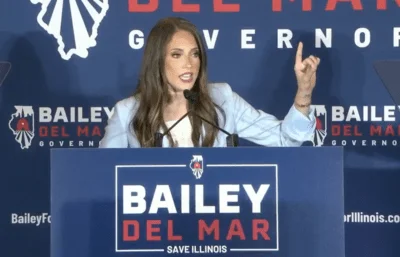Photo by Evlakhov Valeriy, Shutterstock
Photo by Evlakhov Valeriy, Shutterstock
Austin Berg sees nothing to celebrate in the recent passage of a state budget plan.
The House and Senate voted to override Gov. Bruce Rauner's veto of a $36 billion spending bill and a revenue bill that raises income and corporate taxes.
The senior writer for the Illinois Policy Institute said that while the House's July 2 vote was the first time in two years that the House had approved a full-year plan, it does nothing to solve the problems plaguing Illinois.
.jpg)
"The budget package is devoid of any structural spending reforms to slow growth in the cost of government: It lacks comprehensive property tax reform, constitutional pension reform, collective bargaining reform, reforms to Medicaid and more," Berg wrote on the group's website. "The spending bill has also been described as 'booby trapped' in that it blocks money for schools unless Gov. Bruce Rauner signs an evidence-based school funding bill into law. This inaptly named education funding model has been a failure in every state in which it has been adopted."
The package would increase the personal state income tax to 4.95 percent from 3.75 percent and the corporate tax rate to 7 percent from 5.25 percent. According to the Chicago Tribune, the increase is lifted from an earlier Senate plan, but in a concession to Republicans the House plan would make the hike effective from July 1 instead of January 1.
According to the Tribune report, the increases would bring in $4.76 billion more per year. The House plan does not include an expansion of the state sales tax, which was in the Senate plan, but also does not limit the income tax hikes to four years as was originally proposed.
“Illinoisans may recall the 2011 temporary income tax hike, which also took a tax-hike-without-reform approach,” Berg wrote. “Despite $32 billion in extra tax revenue, the state’s unpaid bill backlog only declined by $1.3 billion (to $6.6 billion from $7.9 billion), and pension debt rose by $25 billion. This time, the tax hike is permanent.”
Berg argues that, like the 2011 tax hike, the House plan would simply increase taxes and not address the factors that are leading to ever-increasing government spending. It also would force Gov. Bruce Rauner to accept a school funding formula that Berg does not believe will be effective and that Rauner has criticized as favoring Chicago Public Schools.






 Alerts Sign-up
Alerts Sign-up